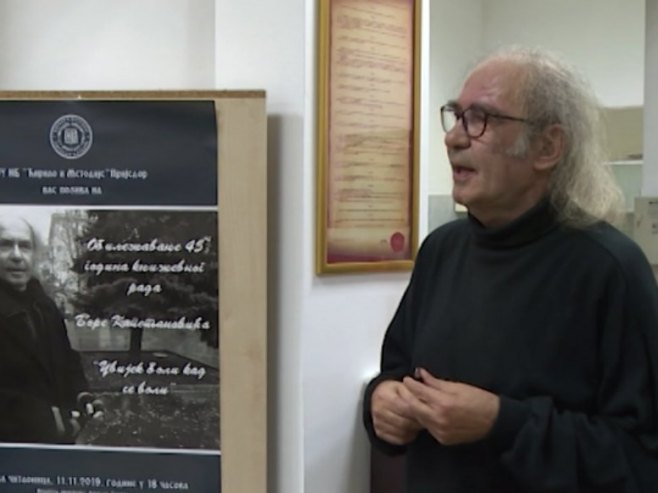The Public Institution Center for Socio-Political Research of the Republic of Srpska presented its latest publication this evening at the Academy of Sciences and Arts of the Republic of Srpska: the book by Mr. Dušan Pavlović, Genocide Against Serbs in the NDH – A Nation That Wasn’t Meant to Exist.
This academic endeavor was organized to mark the 80th anniversary of the Genocide against Serbs in the Independent State of Croatia (NDH), Victory Day over Nazism and Fascism, and Republika Srpska Army Day.

In an era of systematic historical revisionism and efforts to question established historical facts to revive old Nazi plans and projects, the promotion of this book represents an opportunity to openly address topics crucial to preserving national memory and identity—a prerequisite for the survival of the Republic of Srpska and the Serbian people.
This work offers a platform for honest discussion about essential issues concerning the collective memory and identity of Serbs. It was emphasized that the Republic of Srpska was created as a response to the experience of genocide against Serbs in World War II, and that is precisely why it is once again under attack—because its very existence remembers and bears witness.
The author of the book, Dušan Pavlović, stated that Republika Srpska emerged as a response to attempts to complete the genocidal projects from World War II.
“The creation of Srpska is the Serbian people’s no to a new genocide. In contemporary society, exposing this pattern is not only an act of historiographic accuracy but also an ethical duty to the future. As long as the cultural patterns of Serbophobia are not named, understood, and condemned, there is a risk they will resurface in new forms—in education, politics, spiritual life, or the media. Therefore, this is not just a question of history, but of the future: whoever does not articulate their truth is doomed to live in someone else’s narrative—that is, in spiritual and political slavery,” said Pavlović, who is also the Director of the Center for Socio-Political Research of the Republic of Srpska.

Aleksandar Mitić, a research fellow at the Belgrade Institute of International Politics and Economics, stated that this book discusses a systematic, state-sponsored genocide against Serbs and should serve as a warning.
Professor Predrag Lozo emphasized that Serbs must draw lessons from their suffering in the NDH.
“It is important to understand that Srpska was founded as an expression of the desire that such atrocities never happen to us again,” Lozo said, adding that such knowledge must be passed on to the youngest generations.
Professor Draga Mastilović stressed the importance of building a culture of remembrance among Serbs, as it serves as a safeguard against the repetition of genocide.
Nenad Stevandić, President of the National Assembly of the Republic of Srpska, stated that the culture of remembrance of Serbian suffering and execution sites must be transferred to younger generations so that such genocidal intentions against Serbs are never repeated.
“If we ourselves do not demonstrate awareness and pass this memory on to future generations, the genocide against Serbs will go unpunished. We will not allow that,” Stevandić emphasized.
As a reminder, the Public Institution Center for Socio-Political Research of the Republic of Srpska was established due to the necessity of an institutional approach to strategically analyzing internal and external political and other factors important for the Republic of Srpska, and to initiate and define policies in key areas of its existence and development.









